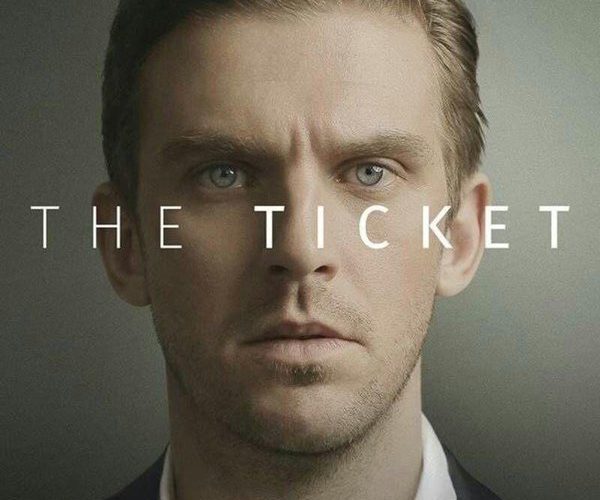In the land of the blind, the one-eyed man is king, which is one of the lessons that the protagonist at the heart of Ido Fluk’s moral thriller The Ticket learns firsthand. The title refers to an antidote told one too many times about a man who prayed to God to win the lottery without every buying a ticket. I suppose, like James (Dan Stevens), the man should have been thankful for what he had all along. The road to this discovery is an ugly, humorless and often a pretentious bore as Fluk continues to hammer his point over and over again.
Opening with stunning sequence masterfully lensed by DP Zack Galler, the film captures the experience of limited vision as lights and shadows appear familiar yet distant. This is the first time James shares the tale of the man who never bought a lottery ticket with his wife Sam (Malin Akerman). Blind since childhood, James wakes up and wanders as if he were a stranger through his home, seeing his son (Skylar Gaertner) and wife for the first time. After a trip to the optometrist, it’s concluded a pituitary tumor has magically shrunk over night, providing James with a winning lottery ticket: a story told so often and usually in great detail that you might as well turn the film into a drinking game so you can enjoy yourself.

Soon after, he abandons his Plain Jane wife (curiously they casted one of the most beautiful actresses in Hollywood in this role, another element of the film that requires a suspension of common sense) and his old work pal Bob (Oliver Platt) after he’s promoted. James becomes an overnight rock star at work after he joins a gym, starts dressing better, and wrecks his marriage by having an affair with a sexy co-worker Jessica (Kerry Bishé). James’ downfall or rise is punctuated by irritatingly long moments of silence relying upon the film’s score (by Danny Bensi and Saunder Jurriaans) to compensate for the shortcomings of the often on-the-nose script (by Fluk and Sharon Mashihi).
As a psychological portrait, The Ticket falls short in one specific area: James’s transition from a working grunt to a stand-out magically entrusted by his company, a shady mortgage refinance mill, to lead a new non-profit division. This new division gives him a few more changes to tell the story of the magical ticket (if you’re still playing along (and awake), you might want to step out to the lobby at about the 90-minute mark and book your Uber) as he teams up with Jessica to teach financial literacy to lower and working-class stiffs like he used to be. Because, remember: you gotta buy a ticket to win!
Given little time with James in his state of physical blindness beyond him telling a story that he keeps repeating, we really cannot feel the psychological effects of his newfound advantages. Cold and distant, which is the point of this character portrait, the film lacks subtlety or even an interesting gray area that allows us an entry point for any sort sympathy. Great movies can be made about horrible people, but not from a script so dependent on the need to spell everything out such as this one.

Platt’s Bob provides some counter measure as he calls James out for taking advantage of his winning ticket as he starts to associate with Sam. Admitting his shortcomings in an almost biblical and completely over-the-top scene, he reveals his jealousy for James. This scene proves, if nothing else, perhaps Bob’s reaction from afar would have made for a more nuanced entry into his material — perhaps he and Sam should have been the protagonists of the film.
Beat by beat, The Ticket offers one predictable, obvious revelation after another right down to its conclusion. When one pulls back to dissect many a cinematic masterpiece, stock elements of a three-act structure and character tropes are usually present, if not skillfully subverted. The Ticket is the equivalent of wandering around a house stripped to its support beams: every painstakingly obvious detail of its construction can be seen from virtually any vantage point.
The Ticket premiered at the Tribeca Film Festival and opens on April 7, 2017.

